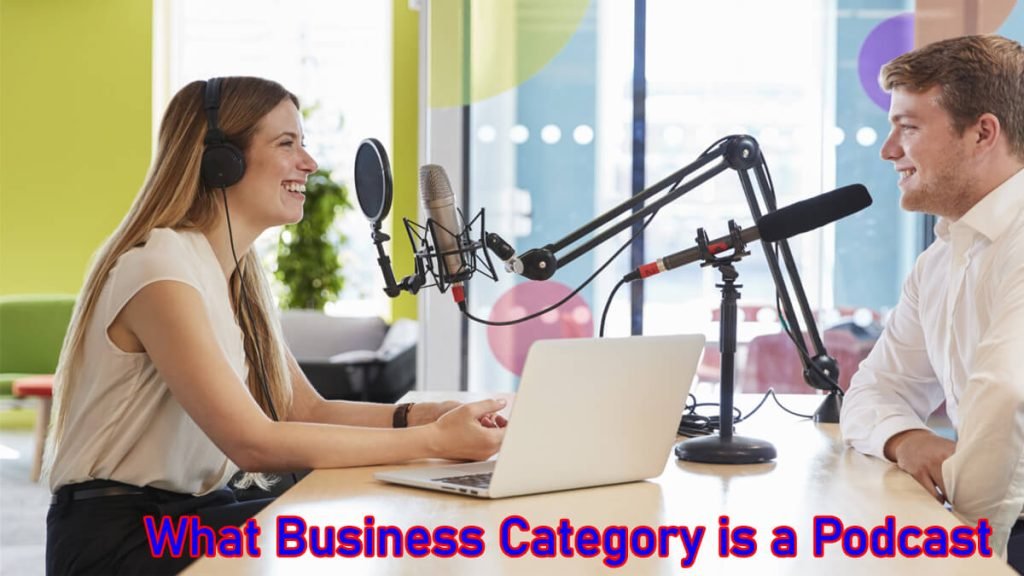What Business Category is a Podcast! In recent years, podcasts have experienced a tremendous surge in popularity, captivating audiences around the world. With their engaging and convenient nature, podcasts have become a go-to source for entertainment, education, and inspiration. However, beyond their recreational appeal, podcasts have also emerged as a viable business category. This article explores the different aspects of podcasting as a business and how individuals and companies can leverage this medium to drive success.
Introduction
Podcasts are digital audio or video files that can be streamed or downloaded over the internet. They cover a wide range of topics, including news, storytelling, interviews, self-help, comedy, and much more. Listeners can subscribe to their favorite podcasts and receive new episodes automatically. The convenience of on-demand content and the ability to listen anytime, anywhere have contributed to the explosive growth of podcasts.
Understanding Podcasts
To comprehend the business potential of podcasts, it’s essential to understand their unique characteristics. Unlike traditional media, podcasts offer an intimate and personalized experience. Listeners develop a sense of connection with the hosts, creating a loyal and engaged audience. This engagement provides an opportunity for businesses to build brand awareness, establish thought leadership, and foster relationships with their target audience.
The Growing Popularity of Podcasts
The popularity of podcasts has skyrocketed in recent years. According to recent statistics, there are over two million active podcasts and more than 48 million episodes available to listeners. People of all ages and backgrounds are tuning in to podcasts regularly, making it a prime medium for businesses to reach a diverse audience. With such a vast listener base, businesses can tap into specific niches and cater to the unique interests of their target market.

Podcasts as a Business Category
Monetizing Podcasts
One of the key aspects of podcasting as a business is the ability to monetize content. Podcasters can generate revenue through various channels, including sponsorships, advertising, and listener donations. As their audience grows, podcasts become an attractive platform for advertisers seeking to reach a targeted audience. Additionally, podcasters can offer premium content or exclusive episodes to their loyal supporters through subscription models.
Sponsorships and Advertising
Podcast sponsorships involve partnering with companies or brands that align with the podcast’s content and target audience. Sponsors typically promote their products or services through ad placements within episodes or dedicated sponsor messages. This form of advertising allows businesses to connect with engaged listeners who trust the host’s recommendations, resulting in a higher conversion rate compared to traditional advertising methods.
Merchandise and Product Sales
Podcasts often develop a strong community around their content. Capitalizing on this sense of belonging, podcasters can sell merchandise related to their show, such as branded clothing, accessories, or other products. Additionally, they can create and sell their own products, leveraging their expertise and credibility to attract customers.
Podcast Networks and Platforms
Hosting and Distribution
Podcast networks and hosting platforms play a vital role in the podcasting ecosystem. These services provide the infrastructure for podcasters to store and distribute their content across various podcast directories and platforms. They also offer analytics and audience insights, enabling podcasters to track their performance and make data-driven decisions to improve their reach and engagement.
Content Creation and Promotion
Podcast networks may provide support in content creation, production, and promotion. They may offer resources such as studio space, equipment, editing assistance, and marketing strategies. Joining a podcast network can provide podcasters with access to a larger audience, cross-promotion opportunities, and collaborations with other shows, further expanding their reach and business potential.
Successful Podcast Business Models
Interview-Based Shows
Interview-based podcasts thrive on inviting influential guests or experts in specific fields to share their insights and experiences. These podcasts offer valuable knowledge and often attract a dedicated audience. Businesses can leverage this model by featuring industry leaders and thought influencers related to their niche, establishing credibility and attracting potential customers.
Niche-Focused Shows
Niche-focused podcasts cater to specific interests or communities, offering highly targeted content to a dedicated audience. By creating a podcast that resonates with a particular niche, businesses can position themselves as industry experts, connecting with a loyal following and building brand authority.
Educational and Instructional Shows
Educational and instructional podcasts aim to provide valuable information and teach new skills to listeners. Businesses can create podcasts that educate their audience about their products, services, or industry-related topics. By sharing knowledge and offering practical advice, they establish trust and credibility, which can translate into customer loyalty and increased sales.
Challenges and Considerations for Podcast Businesses
Competition and Market Saturation
As the popularity of podcasts continues to grow, so does the competition. It’s crucial for podcast businesses to differentiate themselves by offering unique content, providing a fresh perspective, or focusing on an untapped niche. Consistency in quality and regular content production are also key factors in attracting and retaining listeners in a saturated market.
Consistent Content Production
Podcast success relies on consistently delivering high-quality content to keep listeners engaged. Businesses need to develop a content strategy and establish a consistent publishing schedule. Planning and producing episodes in advance, investing in production quality, and engaging with the audience through social media and other channels can help maintain interest and drive growth.
Audience Engagement and Growth
Building an engaged audience is essential for podcast businesses. Interacting with listeners, encouraging feedback, and incorporating audience suggestions can foster a sense of community and loyalty. Actively promoting episodes through social media, email newsletters, and other marketing channels can help attract new listeners and grow the podcast’s reach.
Conclusion
Podcasting has evolved into a prominent business category, providing a valuable platform for individuals and companies to connect with their target audience, establish authority, and generate revenue. With the growing popularity of podcasts and the diverse range of business models available, there are abundant opportunities for success in this dynamic industry. By leveraging the power of podcasts, businesses can amplify their reach, engage with their audience, and thrive in the digital landscape.
FAQs About What Business Category is a Podcast
How can I start my own podcast as a business?
Starting a podcast as a business requires careful planning. Begin by identifying your target audience, determining your niche, and creating a content strategy. Invest in quality equipment, develop a unique format, and focus on engaging storytelling. Market your podcast through various channels, and consider joining a podcast network for added support and exposure.
Can I monetize my podcast from the beginning?
While it’s possible to monetize a podcast from the beginning, it often takes time to build an audience and attract advertisers. Focus on creating valuable content and growing your listener base initially. As your podcast gains traction, explore sponsorship opportunities, advertising, and other revenue streams.
How do I attract sponsors for my podcast?
To attract sponsors, identify brands or companies that align with your podcast’s content and target audience. Craft a compelling pitch highlighting the benefits of partnering with your podcast, such as audience demographics, engagement metrics, and the unique value you offer. Networking, attending industry events, and reaching out directly to potential sponsors can also help in securing partnerships.
What are the essential equipment and software for podcasting?
To start a podcast, you’ll need a reliable microphone, headphones, audio recording and editing software, and a hosting platform to store and distribute your episodes. Additionally, a pop filter, microphone stand or boom arm, and soundproofing materials can enhance audio quality. There are various options available at different price points, so choose equipment that suits your budget and requirements.
How long should a podcast episode be?
The ideal length of a podcast episode depends on your content and target audience. Some podcasts are as short as 15 minutes, while others can go up to a few hours. Consider the attention span of your audience, the depth of the topic, and the engagement level required. Experiment with different episode lengths and gather feedback from your listeners to find the optimal duration for your podcast.


